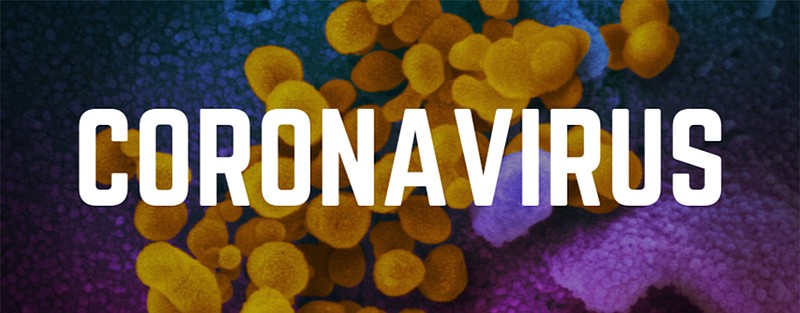After months of internal debate on whether the Missouri Department of Health and Senior Services was giving a full picture of COVID-19 cases in the state, the daily report was updated Monday to show 81,206 previously unreported infections.
The report increased the state's total count of COVID-19 cases by 16.9 percent and came one day after the state marked the anniversary of the first case of the disease in the state. The department had reported 480,913 total cases to date on Monday morning prior to the change.
The additional cases, when added to previous county-level reports, more than doubled the case count for Linn County, in northwestern Missouri, from 548 to 1,178.
There were eight counties - all with fewer than 15,000 residents - where the case numbers increased by more than 50 percent.
The new data represent individuals who tested positive for the coronavirus that causes COVID-19 using the antigen, or rapid, test, instead of the more accurate PCR test. Previously, the state only reported total and county-level data for cases confirmed with PCR tests.
There were 18 counties, all with 50,000 or more residents, where antigen tests have identified 1,000 or more COVID-19 cases. Those 18 counties accounted for 53,635 of the antigen test-identified cases, or 66 percent of the total.
The highest number was 10,673 cases in St. Louis County, which also has 74,760 cases identified by PCR testing. St. Charles County and areas of Jackson County outside Kansas City added more than 6,000 cases each.
The figures mirror the discrepancy found by The Missouri Independent in a review of local health department reports. That review, conducted March 2, found local health departments were reporting 78,116 more cases than the state report showed.
About a month ago, the data report added a weekly total of probable cases and an average number of cases being identified daily with antigen testing. On Monday, that report showed an average of 216 per day as of Friday, compared to 312 per day identified by PCR testing.
"Antigen testing has been and continues to be a very effective tool as part of our mitigation strategy, and the use of this test has greatly increased in recent months," Randall Williams, department director, said in a news release. "Although the rate of community transmission continues to drop significantly throughout Missouri, having probable case information available for each county will help guide ongoing efforts to respond to COVID-19."
The department has also been reporting the positive rate on antigen tests prior to the update that gave actual totals. It stood at 4.3 percent Monday, compared to 4.2 percent on PCR tests.
An antigen test measures the level of coronavirus in saliva and can return a result in 15 minutes or less. It has a higher degree of inaccuracy - mainly from false negatives - than the PCR tests, but it is cheaper and widely available in rural areas where few or no PCR tests are being conducted.
"A lot of rural areas don't have a lot of PCR testing because we don't have access to it and we haven't had access since the beginning," said Linn County Health Department Administrator Krista Neblock.
The health department purchased antigen tests with CARES Act funding.
"Before we were able to do that, our county residents would have to drive to Macon, 30-40 miles away," she said.
Chris Prener, an assistant professor of sociology at St. Louis University who has been compiling data on the pandemic in Missouri, said the absence of antigen test case data could give people a false sense that there's little risk of infection in their community.
"People may believe their risk is substantially lower based on the number of positive cases being reported," Prener said. 'This could have bearing for all sorts of decisions, from schools, if schools believe the situation is one way when cases are substantially higher, to influence people's decision about non-essential travel or going to a restaurant."
The state is calling antigen test-identified cases "probable cases" while PCR-tested individuals who have been infected will be listed as "confirmed cases."
One reason the antigen test is less accurate is that the timing of the test during the course of the infection is important, Nathan Koffarnus, the state health department's epidemiologist, said in an interview on Friday.
A PCR test can identify a case after exposure and before symptoms appear, Koffarnus said.
The antigen test is less reliable if used before symptoms show up and sometimes gives a false positive, he said.
"What kind of everybody found is that it wasn't tested on asymptomatic populations and, when it was, the results were a lot more volatile," Koffarnus said. "That is where there have been some issues with false positives."
Even with those caveats, "in general it is a great test," Koffarnus said.
Koffarnus said the question of whether to report probable COVID-19 cases "is a thing that has been discussed and talked about since May and June on a regular basis."
The department has been working on the update to its dashboard since early February and had initially planned to present the data on Friday. And because the antigen test is becoming more and more the preferred test for coronavirus infections, it was time to get the data out, Koffarnus said.
"You kind of knew this day was coming," he said. "It would have been great if we could have made it sooner."
The Missouri Independent is a nonprofit, nonpartisan news organization covering state government and its impact on Missourians.

